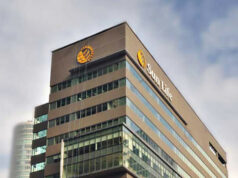By Mark T. Amoguis,
Researcher
YIELDS on government securities (GS) ended flat last week amid tensions caused by North Korea as well as upbeat inflation data from the United States.
Bond yields, which move opposite to prices, decreased by 0.81 basis point (bp) on average week-on-week, data from the Philippine Dealing and Exchange Corp. as of Sept. 15 showed.
“GS yields dipped slightly [last] week, driven by strong demand for the 3-month and 6-month tenors on Wednesday when there was a T-bill (Treasury bill) maturity,” Guian Angelo S. Dumalagan, market economist at Land Bank of the Philippines, said in an e-mail interview over the weekend.
“While short-term yields fell, long-term yields generally increased amid easing concerns over North Korea as well as developments about the US tax reform. Upbeat US reports on consumer and producer price inflation also pushed long-term yields higher, offsetting the drop in short term interest rates,” he added.
A bond trader interviewed separately noted that for the last week, “yields moved mixed, tracking the move of [US] Treasuries anew for most of the review period. Market was preoccupied with North Korea threats and important data reports from the US.”
Tensions continued to rise in the region after the North Korea fired a missile over Japan late last week, the second testing for this month, despite heavy sanctions imposed by the United Nations (UN) earlier last week.
North Korea has launched dozens of missiles under Kim Jong Un’s leadership as it accelerates a weapons program designed to give it the ability to target the US with a powerful, nuclear-tipped missile.
Reuters reported last Friday that following the latest missile launch, White House National Security Adviser H. R. McMaster said the US was fast running out of patience with North Korea’s missile and nuclear programs.
The UN Security Council late last week also condemned the “highly provocative” missile launch by North Korea.
Meanwhile, US consumer prices accelerated in August amid a jump in the cost of gasoline and rents, signs of firming inflation that could allow further monetary policy tightening from the Federal Reserve this year, as planned.
The US Labor Department said on Thursday its Consumer Price Index (CPI) rose 0.4% last month after edging up 0.1% in July. August’s gain as the largest in seven months and lifted the year-on-year increase in the CPI to 1.9% from 1.7% in July.
At the secondary market last Friday, yields rose slightly higher across the board except for the 182-day T-bill’s rate, which dropped by 43.55 bps to 2.5116%.
The yield on five-year Treasury bond (T-bond) rose the most, climbing by 8.22 bps to close at 4.5643%. It was followed by seven-, four-, two-, and three-year T-bonds, whose rates went up by 6.78 bps, 4.37 bps, 3.82 bps, and 3.09 bps, respectively, to 4.3449%, 3.7542%, 3.8786%, and 3.6316%.
Similarly, the yields on 20- and 10-year notes increased by 3.05 bps and 2.52 bps, respectively, to 5.1135% and 4.5631%.
Likewise, 91- and 364-day T-bills gained 2.39 bps and 1.24 bps to yield 2.9139% and 2.8978%.
Sought for their outlook for this week, the analysts said the market will watch out for statements coming out of the policy-setting meetings of the US Federal Reserve and the Bangko Sentral ng Pilipinas (BSP).
“GS yields might increase [this] week due to likely hawkish remarks from the US Federal Reserve and the BSP,” said Mr. Dumalagan.
The bond trader agreed, adding that market participants will also look to the Bureau of the Treasury’s auction of P15 billion worth of reissued 10-year notes — with remaining life of nine years and seven months — for direction this week. — with Reuters



